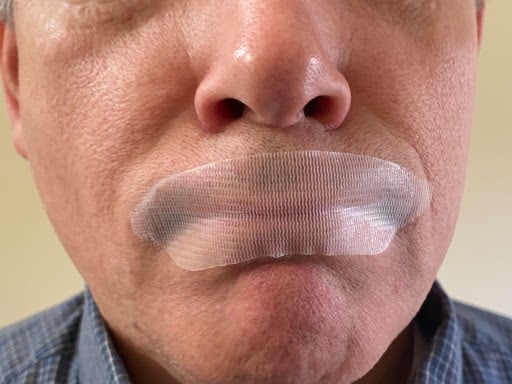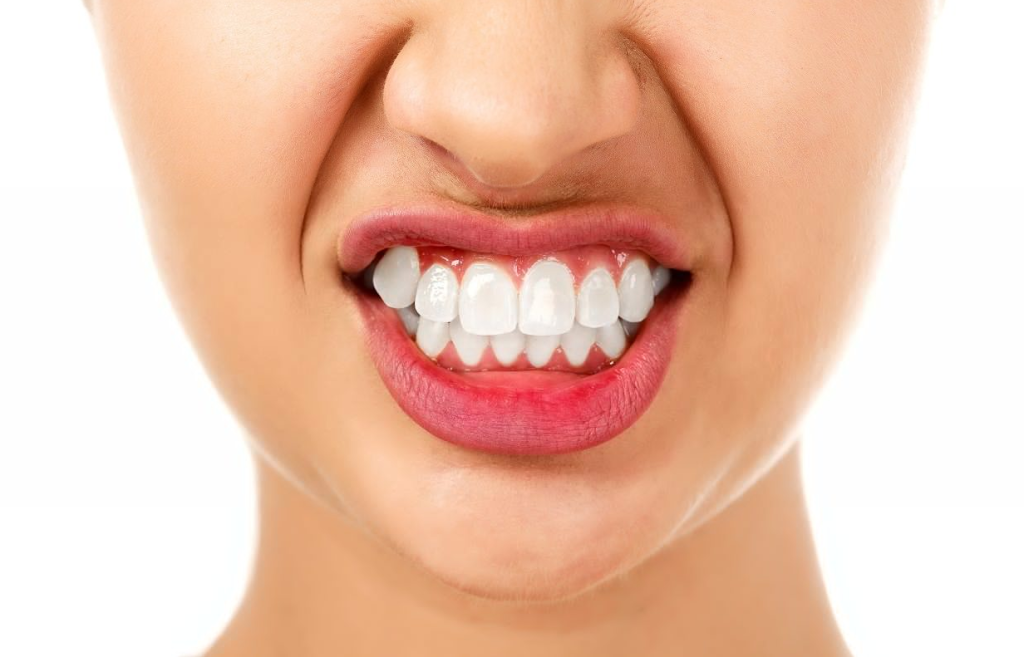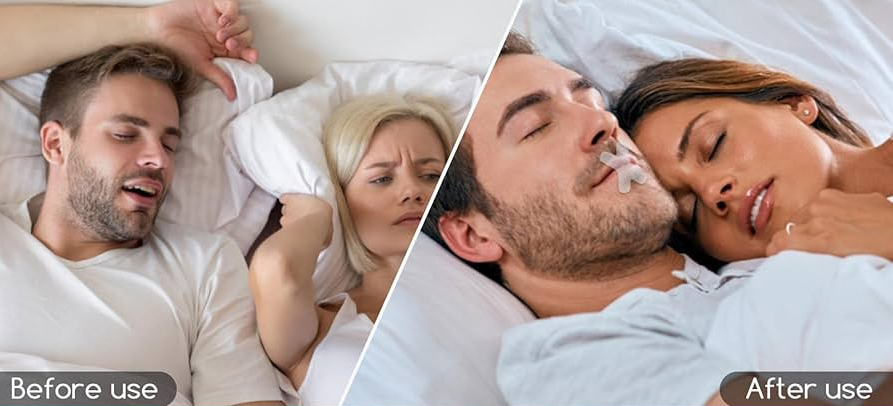In recent years, mouth tape for sleep has gained popularity as a simple yet effective solution for improving sleep quality. The concept is straightforward—by keeping the mouth closed during sleep, it encourages nasal breathing, which is believed to have numerous health benefits. But what exactly is mouth tape, and why do so many people turn to it as a remedy for snoring, dry mouth, and poor sleep? This blog delves into the science and practicalities behind mouth tape, addressing common concerns and questions to help you determine if it might be a good fit for your sleep routine.
Why Do We Breathe Through Our Mouths?
Mouth breathing, while sometimes necessary, can often be a habit that develops over time due to various underlying causes. Understanding why we breathe through our mouths is crucial to addressing the problem and exploring potential solutions like mouth tape.
Nasal Congestion
Conditions such as allergies, colds, sinus infections, or a deviated septum can block the nasal passages, making it difficult to breathe through the nose. When the nose is blocked, the body instinctively switches to mouth breathing to ensure adequate oxygen intake.
Habit
Some people develop the habit of mouth breathing during childhood, often due to chronic nasal congestion or the structure of their facial anatomy. Over time, this habit can become ingrained, even after the initial cause has been resolved.
Mouth Breathing
In obstructive sleep apnea (OSA), the airway becomes partially or completely blocked during sleep, often leading to mouth breathing as the body struggles to maintain airflow. This condition can be particularly concerning because it disrupts sleep quality and can lead to other health issues, including heart problems and daytime fatigue.

Lifestyle Factors
Lifestyle factors like smoking, drinking alcohol, or using sedatives can relax the muscles in the throat and mouth, leading to mouth breathing during sleep. These substances can cause the airway to narrow or become obstructed, making it more difficult to breathe through the nose.
What Is Mouth Tape?
Mouth tape is a simple yet effective product designed to promote nasal breathing during sleep by keeping the mouth gently closed. It typically consists of adhesive strips applied across the lips, serving as a reminder to breathe through the nose rather than the mouth.
Types of Mouth Tape
Some tapes are designed as single strips that run horizontally across the lips, while others are shaped in an “X” pattern, offering more flexibility and comfort. The adhesive used in these tapes is generally hypoallergenic and gentle on the skin, ensuring that it doesn’t cause irritation or discomfort during sleep.
The Benefits of Mouth Tape
Improved Breathing Quality
Nasal breathing is more efficient than mouth breathing because the nose acts as a natural filter, humidifier, and warmer of the air we breathe. This process helps to trap dust, allergens, and other particles, preventing them from reaching the lungs. Additionally, nasal breathing promotes the production of nitric oxide, a molecule that improves blood flow and oxygen circulation throughout the body. By encouraging nasal breathing, mouth tape can enhance oxygen intake and reduce the likelihood of respiratory issues, leading to better overall health.
Reduction in Snoring
By keeping the mouth closed and encouraging nasal breathing, mouth tape can help reduce or even eliminate snoring. This can be particularly beneficial for people with mild snoring or those who snore due to positional factors, such as sleeping on their back. For partners of snorers, this benefit can significantly improve the sleep environment, leading to better rest for both individuals.
Enhanced Sleep Quality
When we breathe through our nose, we are more likely to enter deeper stages of sleep, which are crucial for physical and mental restoration. Mouth breathing, on the other hand, can lead to fragmented sleep and frequent awakenings due to dryness in the mouth and throat or disruptions caused by snoring. By using mouth tape to maintain nasal breathing, individuals may experience fewer interruptions during the night, leading to more restful and restorative sleep.
Prevention of Dry Mouth and Bad Breath
Mouth breathing during sleep can cause dryness in the mouth and throat, leading to discomfort upon waking. This dryness can also contribute to bad breath, as the lack of saliva allows bacteria to thrive. By keeping the mouth closed, mouth tape helps maintain moisture in the oral cavity, reducing the risk of dry mouth and promoting fresher breath in the morning.
How to Safely Use Mouth Tape?
Before applying mouth tape, make sure your face is clean and dry to help the tape adhere properly. If you have facial hair, consider trimming it around the mouth area to ensure a secure fit. To apply the tape, follow these steps:
- Prepare the Tape: Cut a piece of tape that fits comfortably across your lips. Some mouth tapes come pre-cut, while others may require you to measure and cut the desired length.
- Position the Tape: Gently place the tape over your closed lips, ensuring that it covers both the upper and lower lips. The tape should be centered, with enough coverage to keep your mouth closed without restricting movement.
- Press Down Gently: Lightly press down on the tape to secure it in place. Make sure it adheres well but does not feel overly tight or uncomfortable.
- Test for Comfort: Once the tape is applied, test for comfort by breathing through your nose. The tape should keep your mouth closed without feeling restrictive. If you experience any discomfort or difficulty breathing, remove the tape and adjust its position.
Can Mouth Taping Help with My Snoring?
Snoring is a common sleep disturbance that can affect both the snorer and their sleeping partner. For many, the idea of using mouth tape to reduce or eliminate snoring may seem unconventional, but it has been shown to offer benefits for some individuals. Mouth taping works by gently holding the lips together during sleep, preventing mouth breathing. This encourages the body to switch to nasal breathing, which, as mentioned, can help reduce snoring. For individuals who primarily snore due to mouth breathing, this simple intervention can lead to a noticeable decrease in snoring frequency and intensity.
Will Mouth Taping Cause Suffocation?
For most people, nasal breathing is entirely sufficient for maintaining adequate oxygen levels throughout the night. The nose is capable of handling the airflow needed to sustain normal breathing during sleep, even when the mouth is taped shut. This is particularly true if the individual has clear nasal passages and no underlying breathing conditions that could compromise nasal airflow.
Who Should Avoid Mouth Taping?
While mouth taping is safe for most people, there are certain situations where it may not be advisable. Individuals with severe nasal congestion, a deviated septum, or other conditions that affect nasal airflow should consult a healthcare provider before using mouth tape. Additionally, those with sleep apnea, particularly obstructive sleep apnea (OSA), should be cautious, as mouth taping might not be suitable and could potentially worsen their condition.
What Are the Alternatives to Mouth Taping?
While mouth taping can be an effective method for encouraging nasal breathing and reducing snoring, it might not be suitable for everyone. Some individuals may prefer or require alternative methods to achieve similar benefits. Here are several alternatives to mouth taping that can help improve sleep quality, reduce snoring, and promote better nasal breathing.
Nasal Dilators
Nasal dilators are small, often flexible devices that are inserted into the nostrils to help open up the nasal passages. By physically expanding the nostrils, nasal dilators improve airflow through the nose, making it easier to breathe. This can be particularly beneficial for individuals with nasal congestion or structural issues that restrict airflow. Nasal dilators come in various shapes and sizes, and they are generally comfortable and easy to use.
Humidifiers
A humidifier can help maintain moisture in the air, which can be particularly beneficial for individuals who experience dry nasal passages or throat irritation. By adding moisture to the air, a humidifier can reduce congestion and make it easier to breathe through the nose. This can help alleviate snoring and improve overall sleep quality.
Positional Therapy
Positional therapy involves changing your sleeping position to reduce snoring and improve breathing. For many people, sleeping on their back can lead to airway obstruction and snoring, as the tongue and soft palate may collapse backward. By sleeping on your side, you can help keep the airway open and reduce snoring.
CPAP Therapy
Continuous Positive Airway Pressure (CPAP) therapy is a common treatment for obstructive sleep apnea (OSA). A CPAP machine delivers a continuous flow of air through a mask that keeps the airway open during sleep. This treatment is effective for managing sleep apnea and reducing snoring.
Oral Appliances
Oral appliances are custom-made devices that fit inside the mouth and help reposition the jaw and tongue to keep the airway open. These devices are often used to treat snoring and mild to moderate obstructive sleep apnea. Oral appliances are typically worn during sleep and can be an effective alternative to CPAP therapy.
Conclusion
Mouth taping is a simple yet effective method to encourage nasal breathing and improve sleep quality. While it might not be suitable for everyone, understanding its benefits, addressing safety concerns, and exploring alternative solutions can help you make an informed decision. Whether you’re looking to reduce snoring, enhance your breathing, or simply achieve a better night’s rest, mouth taping could be a valuable tool in your sleep routine.
At Fonitaniya tape companies, we specialize in producing high-quality mouth tapes designed to meet a variety of needs. Our tapes are crafted with care to ensure comfort and safety during use. Additionally, we offer customization options to cater to specific preferences, allowing you to create a product that perfectly suits your requirements. Whether you’re in need of standard mouth tapes or bespoke designs, Fonitaniya is committed to delivering exceptional products that enhance your well-being.




